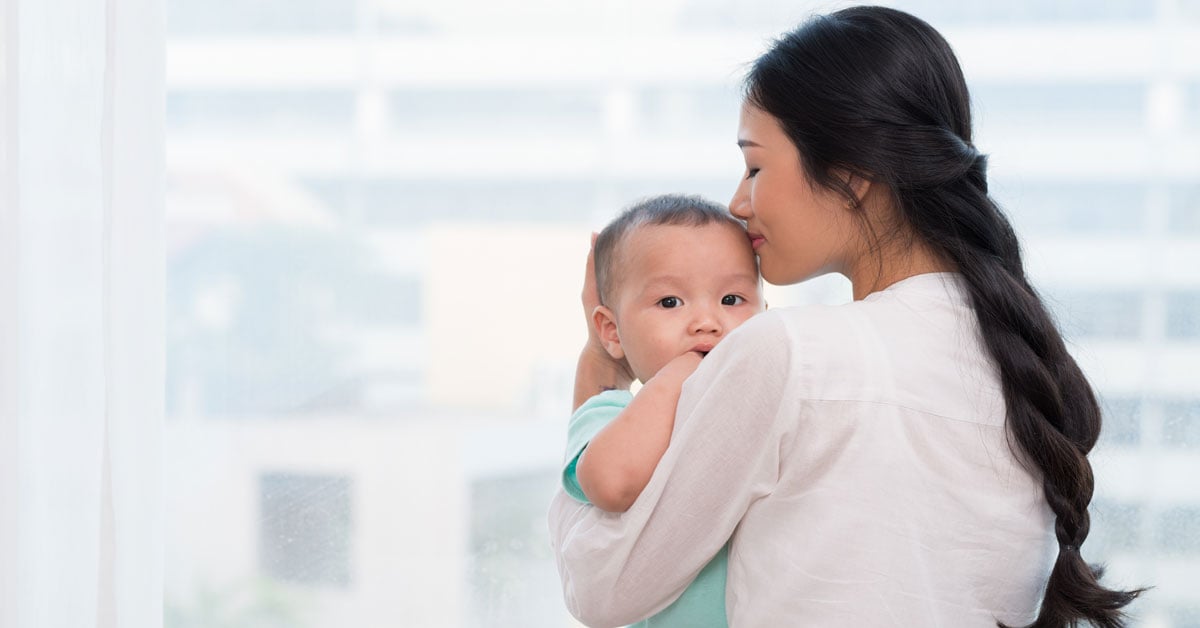The headline probably shocks you, right?
After all, a lot of younger millennials and Gen Zs seem to not want kids.
Reader: Ya, every time I ask my friends, they always say they don’t want kids.
Your friends may have justified their choice by using the term DINK, which stands for double income, no kids.
DINKs refer to couples who are both working but do not have kids, which allows them to lead more lavish lifestyles than the average couple. DINKs also tend to have more freedom to travel as and when they want and take more risks in their career as they don’t have any dependants.
Because the term DINK has become so popular, many of us would assume that plenty of Singaporeans don’t want any kids at all.
However, a new study, involving 10 researchers from various countries, has found that – surprise – Singaporeans want children!
And it seems they’re very particular, with one child being the sweet spot, no more, no less.
In an era of declining fertility in developed countries, over 22,000 people in eight countries were surveyed online about their family ideals.
The countries are Singapore, Japan, South Korea, Italy, Spain, Norway, the United States and urban China, which refers to Chinese cities.
From December 2021 to February 2022, about 3,500 people in Singapore, including married people and singles, were interviewed.
Singaporeans’ preference for one child is similar to how respondents across the other seven countries felt, said Professor Jean Yeung, the study’s principal investigator for Singapore, which was one of eight countries involved in the study.
She said this preference comes as a shock as past research has shown that there is a two-child norm in Singapore.
If you look at the younger millennials and Gen Zs, you’ll also notice that a lot of them only have one sibling.
Prof Yeung, who is also the director of social sciences at the Agency for Science, Technology and Research’s Singapore Institute for Clinical Sciences, said: “This finding suggests that the previous method of asking people only the question ‘What is your ideal number of children?’ is flawed. It overestimates the actual number of children people want.”
She noted that in this study, it was found that people in Singapore do not prefer having two or more children – over just one child – if other areas of family life they value are not fulfilled.
The study found that the eight countries agreed that a family with no children is considered less ideal than families with at least one child, and could not find evidence that families with more children are viewed more positively than families with one child. It seems we can all agree that having one child is ideal.
The study comes as preliminary data showed that Singapore’s resident total fertility rate (TFR) fell below 1.0 for the first time in 2023 to 0.97, Minister in the Prime Minister’s Office Indranee Rajah said earlier this year.
Total fertility rate estimates the average number of children that a woman would have over her childbearing years.
Let’s say there are two women in a population (a very very small population). One has one child while the other has zero. To calculate the TFR for this population, you’d add one and zero then divide it by two, giving you a TFR of 0.5.
So why is a TFR of 0.97 bad?
First, let’s talk about replacement level fertility (RLT). RLT is the level of fertility at which a population exactly replaces itself from one generation to the next.
In developed countries, RLT can be taken as requiring an average of 2.1 children per woman.
Reader: 2.1? That’s not replacing the population, that’s doubling it!
How many people are required to make a baby?
Reader: … Oh. But what about the extra 0.1 then?
You never know what will happen. Some people die when they’re young and don’t live to reproductive age. The 0.1 sort of accounts for that.
With a TFR of 0.97, we are obviously not replacing the population; it’s shrinking. The 0.97 figure also places Singapore among countries with the lowest TFR globally.
This is probably why we saw PM Lee asking us to have more children during his CNY 2024 message.
In the study, respondents were asked to consider factors across 10 areas when thinking about the number of children they want. Such factors include family income, work-life balance, communication with family members, and expectations of their child’s educational attainment.
Respondents were asked to evaluate scenarios describing families with varying characteristics across the 10 areas. They were asked to rate each scenario on a scale of 0 to 10, with 10 being the number they agree with most, on what they see as a family they would like to have.
Prof Yeung noted that this methodology has led to more realistic answers from respondents on their ideal family size, as people make trade-offs when deciding on the number of children they want and other aspects of family life they value.
It’s like when you have eight hours after school and you have to decide between studying and lepaking. To get more hours to study, you need to make a trade-off and sacrifice some of your lepak hours.
For some, this means six hours of studying and two hours of lepaking. For you, this may mean zero hours of studying and eight hours of lepaking.
The study found that the respondents in all eight countries have similar family ideals. These ideals include:
- Good communication between immediate family members, that the family is respected in the community, and mutual support between partners as they pursue their professional and personal goals, were among the top attributes valued by respondents.
- An above-average family income is more desirable than an average or below-average family income.
Abuden? Having too much money is definitely less of a problem than too little money.
Respondents in Singapore differed from the other countries in three areas:
- Singaporeans do not place as much emphasis on egalitarian gender relationships in a marriage as people in other countries, especially Spain and Norway.
Egalitarian gender relationships refer to dual-earner relationships where the men and women split paid and unpaid work in equal parts.
For example, this means that after both partners come home from work, they split the chores. One makes dinner while the other does the laundry, then one sweeps the floor while the other does the dishes.
Prof Yeung said that Singaporeans seem to think that women who work and do most of the domestic duties at home, such as childcare and housework, are not any worse off than if both husband and wife share the domestic duties equally when both are in the workforce.
Why is this the case ah? If your boss asks you to do all the work while your colleague gets to slack off and drink kopi all day, are you not worse off?
- Singaporeans see cohabitation as less ideal than respondents in European countries and the United States.
- When it comes to a child’s education, Singaporeans perceive having a post-graduate education as more ideal than having just a bachelor’s degree, compared with respondents in the other countries, except for China and Norway.
Prof Yeung said the eight countries studied have high incomes and low fertility rates, but they are different in cultural values and welfare systems.
Among the eight, Singapore has the second-lowest TFR after South Korea’s 0.72 in 2023. The United States has the highest TFR of 1.78 in 2023, said Prof Yeung.
The study did not ask why respondents deem having one child as ideal, but Prof Yeung said the difficulties of juggling work and raising children, and the high cost of raising children are among possible reasons.
She said, “The emphasis is on the quality of family relationships, living standards, and the quality – not quantity – of children.”
There are several who also feel Singapore is not a suitable place to raise a child. With high stress levels and an extremely competitive climate, many feel they should not put their potential child through that and hence choose to remain childless.
Of course, there are also some who simply do not want to sacrifice their current lavish lifestyles, and choose to be DINKs. After all, it is not cheap to raise a child in Singapore.



